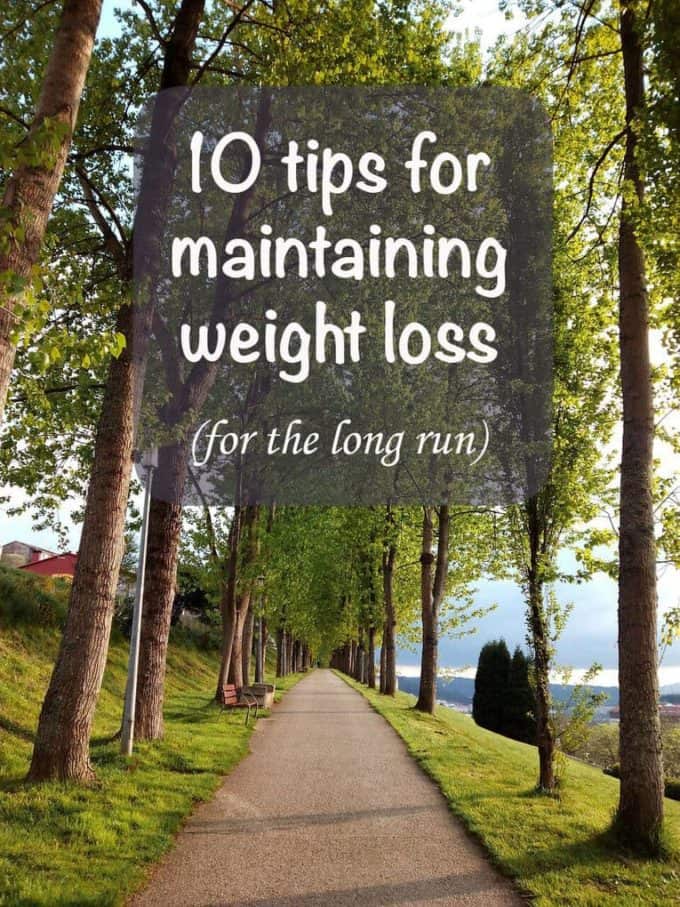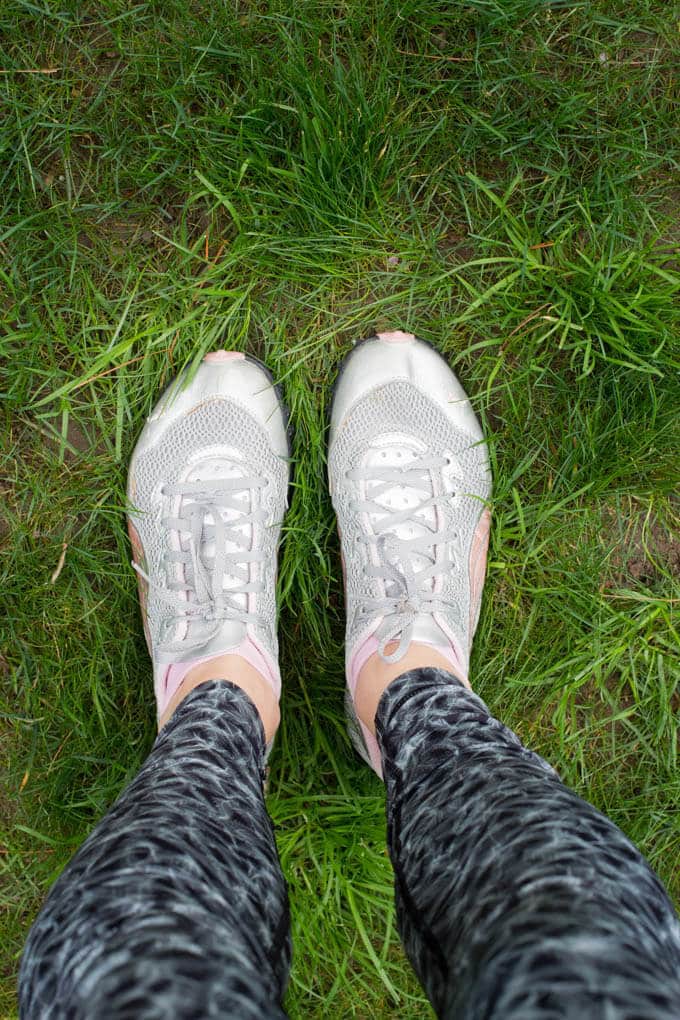Today I wanted to share with you a little about my own experience with weight loss and offer you some personal but also science-backed ideas for long-term weight loss maintenance. First, a brief run-down of my back story. (Or you can skip right to the tips.) I bounced around a bit in college, weight wise, but nothing extreme. Most of my teen and young adult life, I was a size 8 — sometimes a 6, sometimes a 10 — and I graduated college closer to the 10 side. It was all those mango martinis and late-night snacks that last semester when we were out celebrating. After college, and especially after I moved to D.C. later that summer, I started walking more, just around the city. I also started cooking more, here and there. Then I started to get back into exercise. (I’d been really active growing up and through high school but had slacked off a bit in college.) As I started to lose weight, I started adopting more and more healthy habits. Ordering more healthy when we went out. Passing on some of the treats they had at work. Making more of my own meals and snacks. Exercising more regularly. Getting results was encouraging and over the next year, I lost more than 20 pounds. And I’ve kept it off for almost 12 years now, including through two pregnancies. And whew, was it harder after the second baby than the first! In addition, I’ve worked in the health and nutrition field that whole time, so I’ve seen a lot of the science behind weight loss and weight maintenance. So are you ready to think about maintaining weight loss for a lifetime? Great! Let’s start with the good news. You lost the weight! That’s amazing! You worked hard, you stuck with it, you bounced back from setbacks and you reached your goal weight (or you are almost there and are very smart to be thinking ahead to the next phase)! Woo hoo! Let’s celebrate! But maybe with a high five, a pedicure and a long walk rather than food or drinks. See, as hard as it is to lose weight, it can be just as hard — or harder — to keep it off over the long haul. That’s my bad news. I’m just trying to be honest and maybe this is something you already know to be true. Yo-yo dieting happens for a reason and it’s because while it’s no walk in the park to lose a chunk of weight, it’s seriously difficult to keep that weight off for a significant amount of time. All that work you did day in and day out over the past weeks, or months or years even to lose the weight? It doesn’t stop. It doesn’t ever stop. Let’s take a look at why. Once you lose weight, you are considered a “weight-reduced individual.” And as such, your body literally resets. Your hormones change. Your metabolism is different. Hunger increases and your ability to self-regulate decreases. It’s kind-of a perfect storm for gaining all that weight back. And sometimes a little extra. Some describe it as your body desperately trying to get you to gain the weight back. It’s pulling to reset you at the higher weight. (Which was maybe useful for our long-ago ancestors who were facing periods of famine, but not so useful for the modern-day dieter.) And you may think that after a year or two, or maybe even 5 or 10 years of maintaining that weight loss, that pull will go away. That your body will stop fighting you and accept the new, lower weight. Sadly, science doesn’t bear that out. Neither does my personal experience. If anything, it gets a little harder as time goes on because our metabolism naturally slows as we age so in addition to being at a lower set point after losing weight, we continue to need fewer calories. (I just turned 35 and the struggle is REAL. I gained a few extra pounds this holiday season, which doesn’t usually happen. I’m not overly worried or concerned about it, I’m just gonna continue to chug away to get it back off. But yeah, it never ends and it kinda sucks.) One particularly memorable visual I saw to illustrate this was of two women of the same size sitting at a restaurant. (This was from HBO’s Weight of the Nation documentary, which I’ve watched several times. It’s compelling stuff.) These two friends weigh the exact same, let’s say 140 pounds. Woman A has always weighed that. Woman B weighs that now after dieting and losing 10% to 20% of her original body weight. So now Woman B is a weight-reduced individual and as such, she requires 20% fewer calories than her friend who is the exact same weight. So if Woman A needs about 2,000 calories a day, Woman B needs just 1,600. She lost the weight and now she has to eat 20% less every day than someone who was always that weight. And she always will. If you’re feeling a little defeated and hopeless, please, please don’t. I’m here to tell you maintaining weight loss for a lifetime IS possible. I just felt the need to explain some of the scientific evidence so you would know what’s happening and why. Knowledge is power, right? Well now you’re armed and ready and can do what’s necessary to keep the weight off for good. So here are my top tips for the maintenance phase of weight loss. These are gathered from my personal experience, the findings from the National Weight Control Registry of other people who have had success with long-term weight maintenance, and my science/nutrition knowledge from years of reading about this news.
I feel like these all need much more explanation, so let’s do a deeper dive on these tips for maintaining weight loss for a lifetime (or just a really, really long time): Long story short, it’s not easy. I’m sorry, I really wish it was. It takes a lot of work and it doesn’t let up. But if you can adopt healthy, sustainable habits, make healthy eating choices your norm and stay committed, you can absolutely do this! Here’s a few last key tips for maintaining weight loss for a lifetime:
Start small. Baby steps, my friend, baby steps. Don’t try to make a ton of changes at once. I eased into my weight loss and weight maintenance by walking more, then cooking more, then exercising more, then making healthier eating choices, then cutting back on eating out, etc, etc. Just tackle one area at a time and it’ll feel much more do-able. Find a support system. It can make a world of difference to go through this with a friend or to have someone who understands to help motivate you along the way. Try tracking your food and calories. I’m not big on counting calories personally, but I think it can absolutely help when you’re getting started. Food journals have been shown to be super effective and a lot of people in the national weight-loss registry faithfully track their calories. (Some even weigh their portions.) It may be useful at first and after you’ve got the hang of portions, you can back off a bit. Celebrate your success. Find ways to mark milestones and to recognize your hard work. Appreciate how far you’ve come and all the healthy choices you are making for yourself! Be kind to yourself. This is a journey. There will be good days and bad days, good seasons and bad seasons. Treat yourself with the love you would show a friend and then get back to it and try again.
What are your best tips for keeping weight off? I’d love to hear from you so we can support each other! XO, Kathryn






